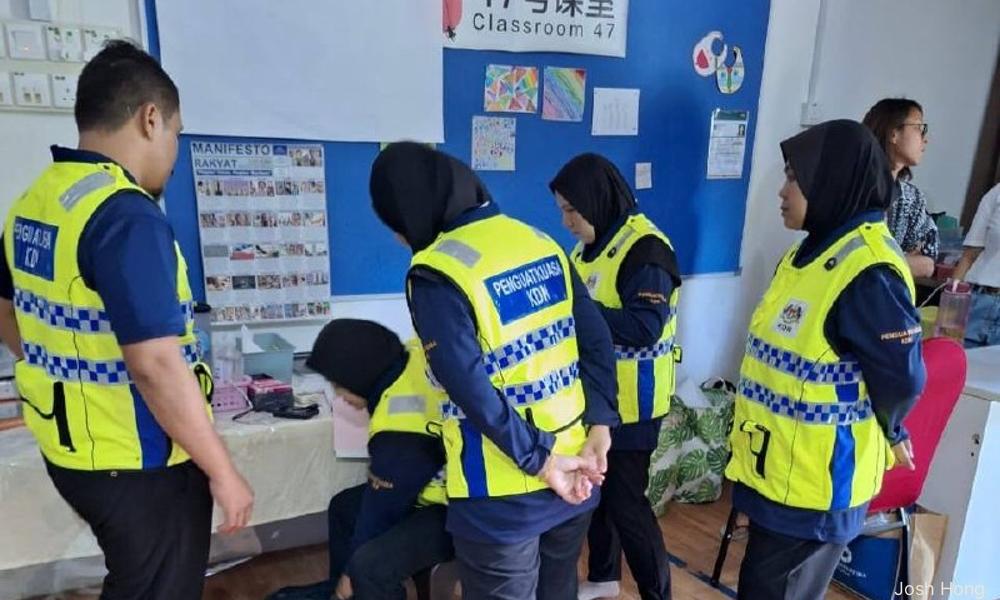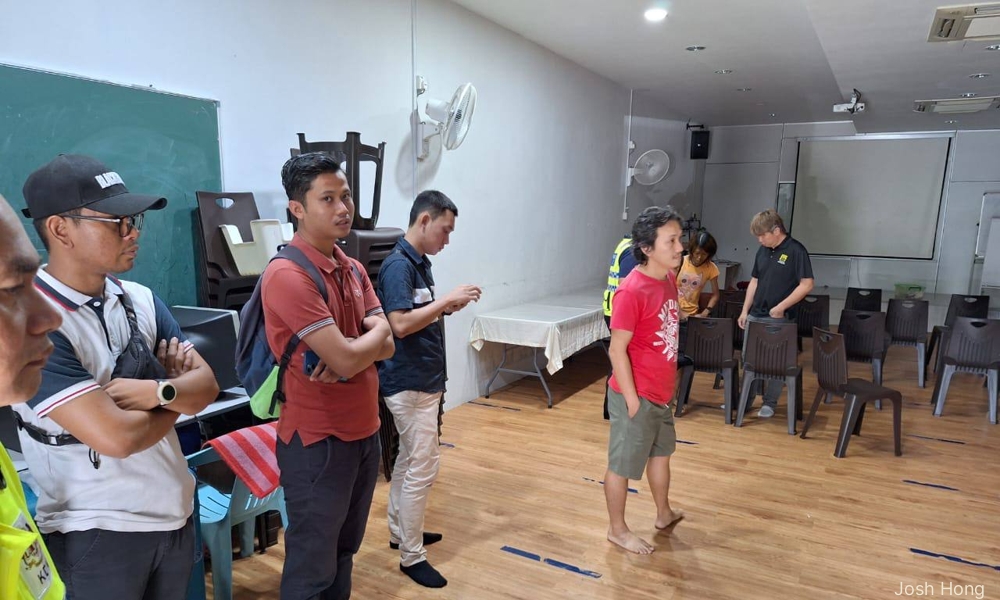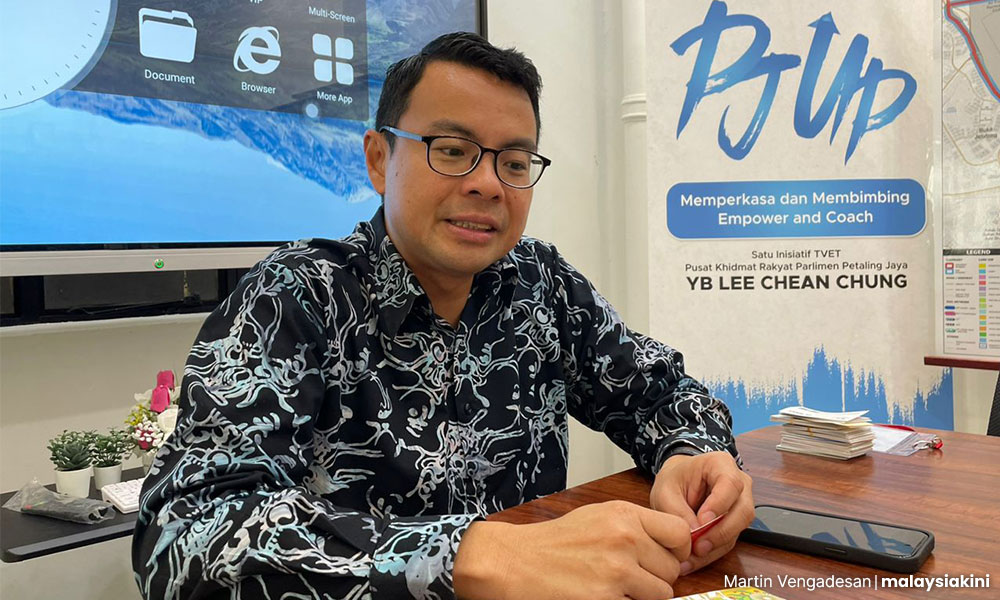A scheduled screening of an independent documentary in Skudai, Johor, today was cancelled after one of the event organisers was taken away for questioning by a team from the Film Censorship Board.
Another event coordinator, Josh Hong, said that over a dozen LPF personnel and police had shown up at the screening of the documentary titled “She’s In Jail” - hosted by NGO Johor Yellow Flame.
“A total of 13 LPF personnel and police were present.
“The LPF officers stopped us from screening the documentary on grounds that it was not approved by the board,” Hong told Malaysiakini.
“They also asked us to hand over the screening devices - an external hard drive and a laptop.
Hong said activist Lee Chen Kang was taken for questioning under Section 6 of the Film Censorship Act 2002, at the Home Ministry Complex.

Section 6 of the Act stipulates that no one should screen any film or related publicity materials that have not been approved by the board.
Hong explained that the documentary does not contain violence or sensitive elements and was of the view that it did not need to be submitted to the LPF for approval.
“It also didn’t occur to us that we needed to do that (submit the documentary for approval)," he said.
When contacted, Lee said he was questioned for about 30 minutes by Home Ministry personnel and allowed to leave close to 5pm.
"They checked my laptop and my external hard drive, and since the laptop doesn't store the movie, they just seized my external hard drive for investigation,” Lee told Malaysiakini.
It is understood that the documentary was previously screened in Kuala Lumpur and Ipoh on March 2 and March 23, respectively, while the screening in Penang, slated on March 16, was cancelled due to issues with the venue.
“She’s in Jail” tells the story of Chow Hang-tung, a pro-democracy activist and human rights lawyer from Hong Kong, who was charged with “inciting subversion” under Hong Kong’s National Security Law.
Chow has been detained for more than two years and is awaiting trial.
‘Censorship rules unrealistic’
Meanwhile, Freedom Film Network executive director Anna Har said the law requiring all films to be submitted to the LPF for approval is not realistic.
Speaking to Malaysiakini, Har said it does not serve as a form of effective content control in this digital age.

“It only serves to be used arbitrarily to criminalise groups, who usually represent minority voices, that perhaps offer a different or alternative perspective to the mainstream view.
“Most countries in the world, including England which introduced the law to our country, have moved away from state censorship but rather focussed on classification and self-regulation.
“Classification will guarantee that rights of expression and choice of all quarters are equally protected,” she said.
Har added that the invocation of the Film Censorship Act in this case is “counterproductive and regressive” to the development of productive global citizens in the long run.

On related matter, PKR MP Lee Chean Chung lashed out at the Home Ministry and urged the latter to stay away from disrupting the NGO’s work.
“This should not have happened. It goes against freedom of expression, a right which is guaranteed under Article 10(1) of the Federal Constitution.
“We need to embrace a new paradigm when it comes to handling new politics,” the Petaling Jaya lawmaker added. - Mkini

No comments:
Post a Comment
Note: Only a member of this blog may post a comment.